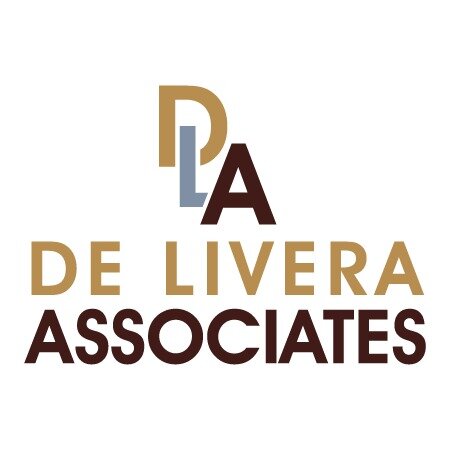Best Tax Increment Financing Lawyers in Sri Lanka
Share your needs with us, get contacted by law firms.
Free. Takes 2 min.
Or refine your search by selecting a city:
List of the best lawyers in Sri Lanka
About Tax Increment Financing Law in Sri Lanka
Tax Increment Financing (TIF) is a public financing method used as a subsidy for redevelopment, infrastructure, and other community-improvement projects. In Sri Lanka, TIF is a relatively new concept that aims to stimulate economic development by capturing the future tax benefits of current investments. The approach typically involves creating a special tax district within a municipal area to earmark increased tax revenues for specific projects. TIF is seen as a tool for driving urban renewal while also benefiting local communities through improved infrastructure and increased property values.
Why You May Need a Lawyer
Seeking legal advice for Tax Increment Financing in Sri Lanka can be crucial in several situations, including:
- Negotiating Agreements: TIF projects often involve complex negotiations among municipalities, developers, and other stakeholders, requiring professional legal expertise to draft and interpret contracts.
- Understanding Regulatory Requirements: A lawyer can help interpret local tax laws and zoning regulations to ensure compliance with all relevant legal and administrative requirements.
- Resolving Disputes: Disputes may arise regarding project execution, funding allocations, and the distribution of tax increments, necessitating legal intervention.
- Project Structuring: Legal advice is essential in structuring the financial and operational aspects of a project to optimize benefits and reduce legal vulnerabilities.
Local Laws Overview
The framework governing Tax Increment Financing in Sri Lanka is embedded within the broader laws on municipal finance and urban development. Key aspects to consider include:
- Economic Development Acts: Legislative provisions that empower municipalities to engage in activities that promote economic development, under which TIF can be applied.
- Local Government Financing Regulations: Regulations on how municipalities can raise and utilize funds, including special taxation districts.
- Zoning and Planning Laws: These laws influence what developments can be undertaken in designated TIF districts.
- Taxation Structures: Understanding how property tax increments are calculated and utilized is critical for any TIF initiative.
Frequently Asked Questions
1. What is the primary purpose of Tax Increment Financing?
The primary purpose of TIF is to stimulate economic development and urban renewal by financing public improvements and infrastructure projects using future tax gains.
2. How is a TIF district defined in Sri Lanka?
A TIF district is a designated area within a municipality where tax increment financing is applied, usually defined by local government authorities based on development needs.
3. Who benefits from TIF projects?
The primary beneficiaries are communities in the TIF district, as they experience improved infrastructure and increased property values. Developers and investors also benefit from enhanced project viability.
4. Are TIF funds exclusively for public projects?
While primarily used for public infrastructure, TIF funds can also support private development projects that contribute to broader economic goals within the TIF district.
5. How are tax increments calculated?
Tax increments are calculated based on the increase in property tax revenues from the base value at the time of TIF district designation to the current value.
6. Can TIF be used for any type of development?
No, TIF is usually applied to projects that align with economic development goals, such as infrastructure, housing, and commercial projects promoting urban renewal.
7. What is the duration of a TIF district?
The duration of a TIF district is usually determined by the time needed to complete projects and recoup investments, typically 20 to 30 years.
8. Can TIF funding be used for maintenance costs?
Traditionally, TIF funds are directed towards capital improvements and not operational or maintenance expenses.
9. Who oversees the use of TIF funds?
Local municipal authorities usually oversee the use of TIF funds, ensuring compliance with statutory and financial guidelines.
10. What happens after a TIF district expires?
After a TIF district expires, the increased property tax revenues revert to the general taxing bodies, such as the local government, schools, and other public entities.
Additional Resources
For more information on Tax Increment Financing in Sri Lanka, consider consulting the following resources:
- Urban Development Authority (UDA): Offers guidelines and support for urban planning and development projects.
- Department of Local Government: Provides resources and advice on local government financing and operations.
- Legal Professionals: Lawyers specializing in municipal finance and urban development who can offer personalized advice.
Next Steps
If you find yourself in need of legal assistance regarding Tax Increment Financing in Sri Lanka, consider the following steps:
- Conduct Preliminary Research: Gain a basic understanding of TIF by studying available literature and resources.
- Consult a Specialist Lawyer: Reach out to legal professionals specializing in local government law and urban development for tailored advice.
- Engage with Local Authorities: Contact relevant municipal and development authorities to understand the specifics of TIF application in your area.
- Attend Workshops and Seminars: Participate in sessions on urban development and municipal finance to enhance your understanding of TIF.
Understanding the complexities and applications of Tax Increment Financing can facilitate successful project development and community upliftment in Sri Lanka.
Lawzana helps you find the best lawyers and law firms in Sri Lanka through a curated and pre-screened list of qualified legal professionals. Our platform offers rankings and detailed profiles of attorneys and law firms, allowing you to compare based on practice areas, including Tax Increment Financing, experience, and client feedback.
Each profile includes a description of the firm's areas of practice, client reviews, team members and partners, year of establishment, spoken languages, office locations, contact information, social media presence, and any published articles or resources. Most firms on our platform speak English and are experienced in both local and international legal matters.
Get a quote from top-rated law firms in Sri Lanka — quickly, securely, and without unnecessary hassle.
Disclaimer:
The information provided on this page is for general informational purposes only and does not constitute legal advice. While we strive to ensure the accuracy and relevance of the content, legal information may change over time, and interpretations of the law can vary. You should always consult with a qualified legal professional for advice specific to your situation.
We disclaim all liability for actions taken or not taken based on the content of this page. If you believe any information is incorrect or outdated, please contact us, and we will review and update it where appropriate.
Browse tax increment financing law firms by city in Sri Lanka
Refine your search by selecting a city.

















